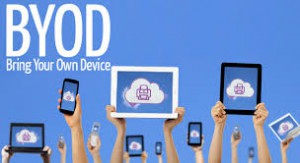 The rise in popularity of tablets is growing so quickly, analysts say they will outstrip sales of both laptops and desktops as early as 2015. Overall, tablet shipments are projected to grow 58.7% in 2013, reaching 229.3 million tablets, up from 144.5 million last year. This contrasts with PC shipments declining by 7.8%, for the second consecutive year of negative growth. To try to offset this decline, PC makers are trying to dazzle end users with a variety of hybrid devices with detachable screens or displays that slide and rotate, emulating the touch features and long battery life of a tablet design. But this may just be a case of too little too late.
The rise in popularity of tablets is growing so quickly, analysts say they will outstrip sales of both laptops and desktops as early as 2015. Overall, tablet shipments are projected to grow 58.7% in 2013, reaching 229.3 million tablets, up from 144.5 million last year. This contrasts with PC shipments declining by 7.8%, for the second consecutive year of negative growth. To try to offset this decline, PC makers are trying to dazzle end users with a variety of hybrid devices with detachable screens or displays that slide and rotate, emulating the touch features and long battery life of a tablet design. But this may just be a case of too little too late.
This year, spending on internet-connected tablets, smartphones and other mobile devices will exceed home broadband service fees for the first time. In the next four years, 87% of people will have mobile internet devices while 85% of homes will have broadband internet connections. This is partly due to the broadband internet market being fairly saturated but additionally, mobile internet device sales are realizing unprecedented successes for a number of key reasons: 1) mobile devices on average cost less, 2) users regard them are easier to use with instant-on capabilities, longer battery life, and user friendly touch screens 3) they are portable, allowing users to take their connectivity with them and lastly 4) the increasing proliferation of companies joining the BYOD movement.
Recent studies have shown that a whopping 73% of SMBs will be supporting BYOD this year and employee tablet use will see a year-to-year increase of 50%. Conversely, only 59% of companies say they have BYOD policies in place and 79% of companies who don’t sanction BYOD in the workplace know that some of their employees use personal mobile devices for business anyway. It is critical for SMBs to take the time to craft a BYOD policy that protects the businesses data and security while walking the fine line of not infringing on an employee’s privacy. It is frightening to consider that 46% of staff who use a personal device for work will let someone else use it and 31% will connect to a company’s network via a free or public Wi-Fi connection. According to Symantec, 2012 saw a 58% increase in mobile malware infections compared to the prior year, and 32% of all mobile threats were an attempt to steal company data, including email addresses and phone numbers.
In addition to being concerned about data protection and security breaches, SMBs should be consider that BYOD could mean staff will ultimately own the business data and process management, not the organizations themselves. This means companies no longer have default control over their systems or infrastructure. Even with the advent of mobile device management tools, if an employee is supplying their own device, how do you regulate what apps and services they use, what kinds of password protection they employ, and how and where they remotely access sensitive data?
To find out the real impact of this new age of untethered technology to organizations and how to get control now, join The Launch Pad CEO, Ilene Rosoff for our webinar, “Are The Inmates Running The Asylum; Who’s In Control Of Your Business Technology?” Otherwise, before you know it you might find the inmates running the asylum and running off with your business.
For more information on solutions for running your businesses’ technology more efficiently, visit our website or contact Megan Meisner at mmeisner@launchpadonline.com or 813 920 0788 x210.




